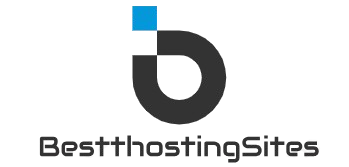Managing Multiple Hosting Accounts Securely and Efficiently
As the digital landscape continues to evolve, businesses and individuals alike are increasingly reliant on web hosting services to establish an online presence. However, with the proliferation of websites, apps, and online services, managing multiple hosting accounts has become a common challenge for many users. In this comprehensive guide, we will delve into the intricacies of managing multiple hosting accounts securely and efficiently, exploring best practices, tools, and strategies to streamline this process.
The Importance of Secure and Efficient Hosting Account Management

When it comes to managing multiple hosting accounts, security and efficiency should be top priorities. With cyber threats on the rise, ensuring the security of your hosting accounts is crucial to safeguarding sensitive data and maintaining the integrity of your online presence. Similarly, efficiency plays a key role in optimizing performance, reducing downtime, and enhancing user experience. By effectively managing multiple hosting accounts, you not only mitigate risks but also improve overall operational efficiency.
Centralized Control Panels

One of the most effective ways to manage multiple hosting accounts securely and efficiently is by utilizing centralized control panels. Control panels like cPanel and Plesk allow users to manage all their hosting accounts from a single interface, simplifying tasks such as domain management, file uploads, database administration, and email configuration. By centralizing control, users can easily monitor and manage all their hosting accounts without the need to log in to each account separately.
Automation Tools

In addition to centralized control panels, automation tools can further streamline the management of multiple hosting accounts. Automation tools like Ansible, Puppet, and Chef enable users to automate routine tasks, such as software installations, updates, and backups, across multiple hosting accounts. By leveraging automation, users can save time, reduce human error, and ensure consistency in their hosting management processes.
Security Best Practices

When it comes to managing multiple hosting accounts, security should be a top priority. Implementing security best practices, such as using strong passwords, enabling two-factor authentication, and regularly updating software, can help mitigate the risk of cyber threats and unauthorized access. Additionally, users should regularly monitor their hosting accounts for any suspicious activity and promptly address any security vulnerabilities to safeguard their data and sensitive information.
Backup and Disaster Recovery
Backing up data is a critical aspect of managing multiple hosting accounts securely. In the event of a data loss or security breach, having reliable backups ensures that users can quickly restore their websites and applications without experiencing significant downtime. Users should implement robust backup strategies, including regular backups to remote servers or cloud storage, to mitigate the risk of data loss and ensure business continuity.
Resource Allocation and Scalability
Managing multiple hosting accounts also involves optimizing resource allocation and scalability to meet the changing needs of users. By monitoring resource usage, such as CPU, memory, and storage, users can allocate resources efficiently, prevent bottlenecks, and ensure optimal performance across all their hosting accounts. Additionally, users should plan for scalability by choosing hosting providers that offer flexible scaling options to accommodate growth and increased traffic.
Monitoring and Performance Optimization
Regular monitoring and performance optimization are essential for maintaining the security and efficiency of multiple hosting accounts. By monitoring key performance metrics, such as uptime, page load times, and resource usage, users can identify and address any issues that may impact the performance of their websites and applications. Performance optimization techniques, such as caching, content delivery networks (CDNs), and code optimization, can further enhance the speed and responsiveness of hosting accounts.
Common Misconceptions About Managing Multiple Hosting Accounts
Despite the importance of managing multiple hosting accounts securely and efficiently, there are some common misconceptions that users may have. One misconception is that managing hosting accounts individually is more secure than using centralized control panels. In reality, centralized control panels offer enhanced security features and simplify security management tasks, making them a more secure option for managing multiple hosting accounts.
Conclusion
In conclusion, managing multiple hosting accounts securely and efficiently is essential for maintaining the security, performance, and scalability of your online presence. By utilizing centralized control panels, automation tools, security best practices, backup and disaster recovery solutions, resource allocation strategies, and performance optimization techniques, users can streamline their hosting management processes and mitigate risks. As the digital landscape continues to evolve, it is crucial for businesses and individuals to stay informed about best practices and tools for managing multiple hosting accounts effectively.
Remember, the key to successful hosting account management lies in proactive security measures, efficient resource allocation, and continuous performance optimization. By prioritizing security and efficiency in your hosting management practices, you can ensure a seamless online experience for your users and protect your data from cyber threats. Whether you are a small business owner, a web developer, or a digital marketer, managing multiple hosting accounts securely and efficiently should be a top priority in your online strategy.




